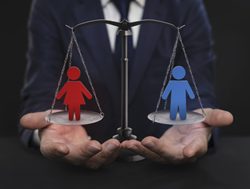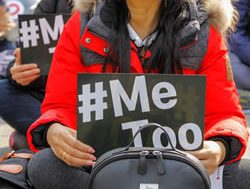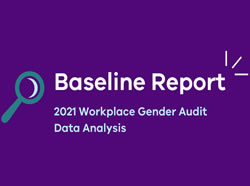Michelle Penelope King* says who are committed to advancing gender equality need to call out bad behaviour when it happens.
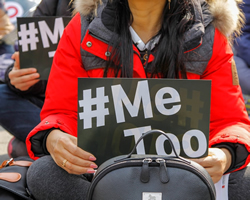 Five years after #MeToo, the impact is clear: The majority of women feel safer at work.
Five years after #MeToo, the impact is clear: The majority of women feel safer at work.
A study released last month by Pew Research Center finds that the #MeToo movement has positively affected how organizations manage instances of sexual harassment and assault.
The study finds that seven out of 10 adults in the U.S. believe that perpetrators of sexual harassment or assault in the workplace are now more likely to be held responsible for their actions.
Moreover, six out of 10 people say those who report harassment or assault at work are now more likely to be believed.
While #MeToo has helped more women feel comfortable speaking out and reporting harassment at work, it has also curtailed women’s advancement.
Research has demonstrated a clear link between the #MeToo movement and male managers being more reluctant to hire, work with or mentor women — which makes it more difficult for women to get ahead.
For example, 21 per cent of men are less willing to hire women for jobs involving close interpersonal interactions and 27 per cent avoid one-on-one meetings with female colleagues, according to a 2019 academic study published in Organizational Dynamics.
These adverse reactions and discriminatory behaviours are a form of backlash as some individuals push back on social developments aimed at increasing gender equality by limiting women’s advancement.
Backlash happens at work because organizations continue to devalue women.
It isn’t enough that workplaces are free from sexual harassment and assault.
Women deserve to work for workplaces that value their strengths, talents and capabilities.
The routine behaviour many take for granted at work — inappropriate jokes, comments, or banter — can become normalized if left unchecked.
This slowly blurs the lines between what is acceptable and what isn’t until, one day, no one can see what is right in front of them: a broken workplace.
By the time women are raising sexual harassment or assault claims, it’s often too late.
The culture in a team, department and entire organization becomes toxic when discriminatory behaviours become normalized.
That is, someone thought it was okay to engage in these discriminatory behaviours, and other people witnessing them didn’t feel safe to speak up, or they saw it and chose to look the other way.
The reality is that most of us will continue to witness gender inequality at work.
For example, a survey of 851 managers in the United Kingdom conducted by the Chartered Management Institute in 2018 found that 85 per cent of women and 80 per cent of men have witnessed discriminatory behaviour at work, including inappropriate remarks, gender bias in recruitment and promotion decisions, and gender inequality in pay and rewards.
To value women at work, we need to hold leaders (most of whom are men) accountable for the toxic cultures they create.
A 2019 research study by the consulting firm Catalyst finds that 45 per cent of employees’ experiences of inclusion directly result from their managers’ behaviour.
Leaders set the standards for behaviours in organizations.
They decide what behaviour is endorsed, accepted, supported, overlooked and rewarded.
They decide how many women will be on a team and, more importantly, if they will be treated in a way that enables them to thrive in the organization.
When women have the same opportunities to succeed and lead as men, it makes the workplace safer and fairer for everyone.
Research has continually shown that companies with more women in management have fewer reports of sexual harassment.
Instead of backing away from interactions with women, men should step forward to support women and help advance their careers.
Leaders who are committed to advancing gender equality need to call out bad behaviour when it happens.
Only then can they use these experiences as opportunities for collective learning with their teams by sharing what happened and what needs to change.
It’s a huge leap forward that more women feel comfortable reporting harassment and abuse at work.
But this is just the start.
Every individual regardless of gender deserves to feel respected and valued at work.
That’s what it means to lead.
*Michelle Penelope King is a globally recognized expert on gender equality and organizational culture.
This article first appeared at forbes.com.

